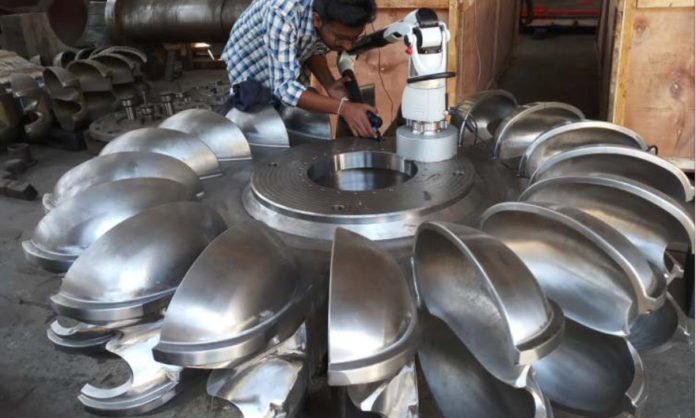In the world of high-tech machinery, software or hardware for that matter, it often happens that purchasing a replacement part or component from an original equipment manufacturer (OEM) is not an option.
Also, amidst the persisting Covid-19 pandemic situation, many customers are hesitating to order materials from overseas. Moreover, in case the components are imported, they may have exorbitant prices and the customer, in such cases, often keeps searching for the indigenous source.
This is where reverse engineering, which is sometimes referred to as back engineering, comes into the picture. The process often involves disassembling something (a mechanical device, electronic component, computer program, or biological, chemical, or organic matter) and analysing its components and workings in detail.
Making a difference
For instance, in the case of pumps, customers sometimes face difficulties in finding replacement parts for their old or obsolete pumps. Even if available, the delivery time or commercial term for such parts is unfavourable sometimes. This is where Kirloskar Brothers Limited (KBL), which is the first and largest pump engineering company in India, makes all the difference. The re-engineering capabilities of KBL provide a suitable and reliable alternative with the best-in-class service assurance, which is a benchmark. The company has dedicated state-of-the-art facilities duly backed by the experienced engineering team to offer a customer model solution customised exactly as per their requirements. The company can produce parts for API, non-API pumps with materials of construction (MOCs) ranging from cast-iron to super duplex. KBL takes pride in the in-house casting of R55, Alloy20 and other grades of critical MOCs prominently among all pump manufacturers across the globe.
READ: Kirloskar opens Advanced Technology Product Division
In fact, the mother plant at Kirloskarvadi in the Sangli district of Maharashtra houses Asia’s largest hydraulic research centre, wherein pumps of duty parameters up to 5,000kW and 50,000 m3/hr can be tested. The centre has a testing facility that ensures that the pump performance meets specifications before installation, irrespective of the size or type of the KBL pump. It also provides a rigorous testing ground for new pump design, development and improvement of existing pumps. Besides, KBL offers expertise in computational fluid dynamics (CFD) analysis with a professional Research and Development (R&D) team.
KBL is the only pump manufacturer in India to have a dedicated 3D printing machine, which helps it replicate a part or create a product prototype to a high degree of accuracy. The parts or product may be turned or cast, a process that is critical in reverse engineering. For casting, KBL has Replicast, a precision foundry process that enables an improved product finish and reduces the overall costs. Its dedicated Replicast team works closely with the engineering team to ensure 100% precision. With such technological capabilities, KBL is well equipped to re-engineer pumps and valves of any age and manufacturer.
Testimony to distinction
KBL is the only pump manufacturer in India to receive the prestigious ESCO Certification, which is testimony to an organisation’s distinction in energy audits through superior design and retrofitting capabilities. It specialises in undertaking detailed quality pump auditing using sophisticated auditing instruments by experienced and certified energy auditors. KBL caters to the requirements of some renowned companies and Government bodies for reverse engineering work. KBL has undertaken reverse engineering projects in all major industry segments including Municipal Corporations, Leading Power Generation Plants, Petroleum Industries, Oil & Gas Refineries, Cement and Chemical Industries, among others. These projects are done in both Indian and International locations.
Moreover, reverse engineering is also an integral step towards boosting the ‘Make in India’ and ‘Atmanirbhar Bharat Abhiyan’ models.




